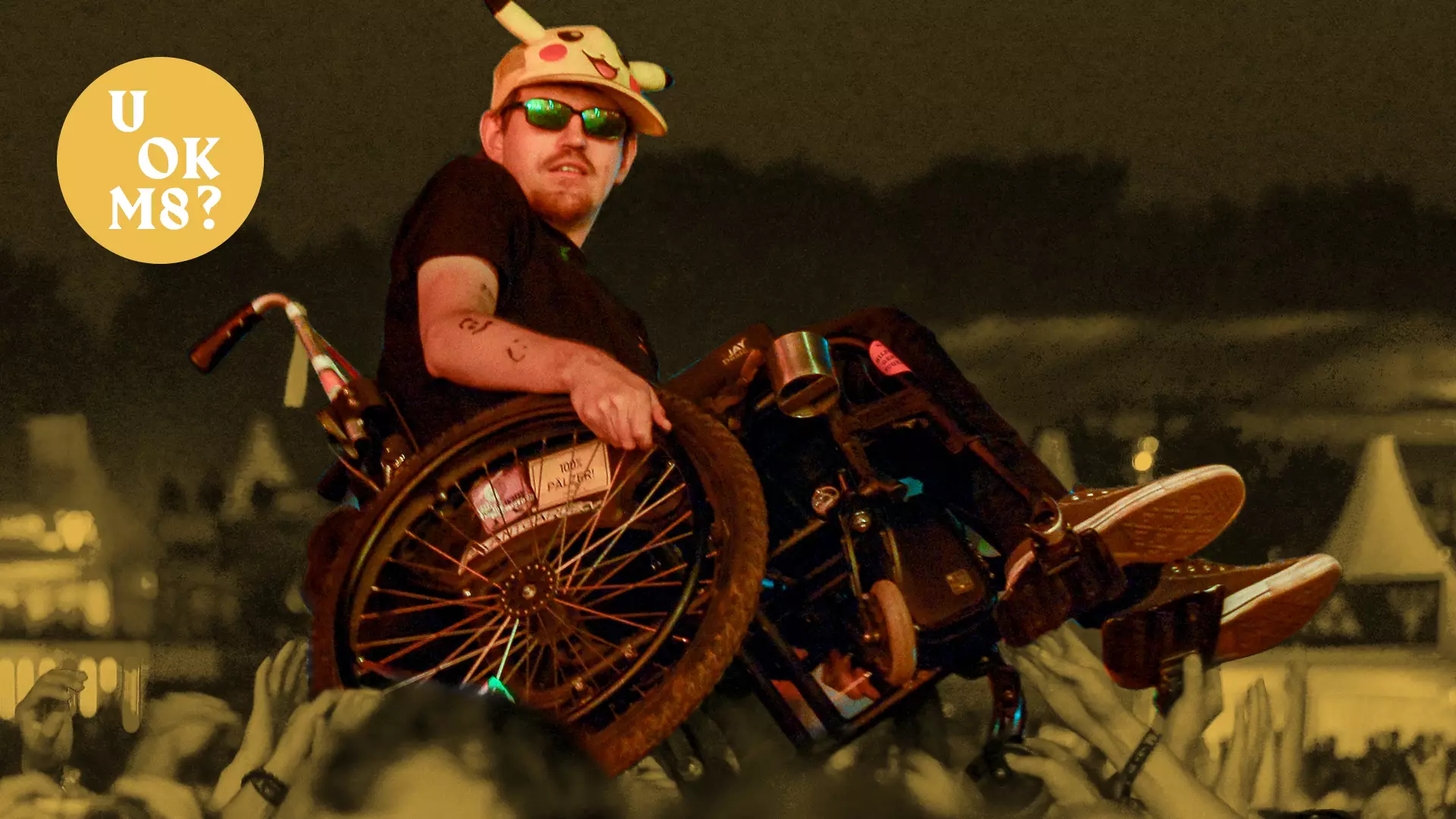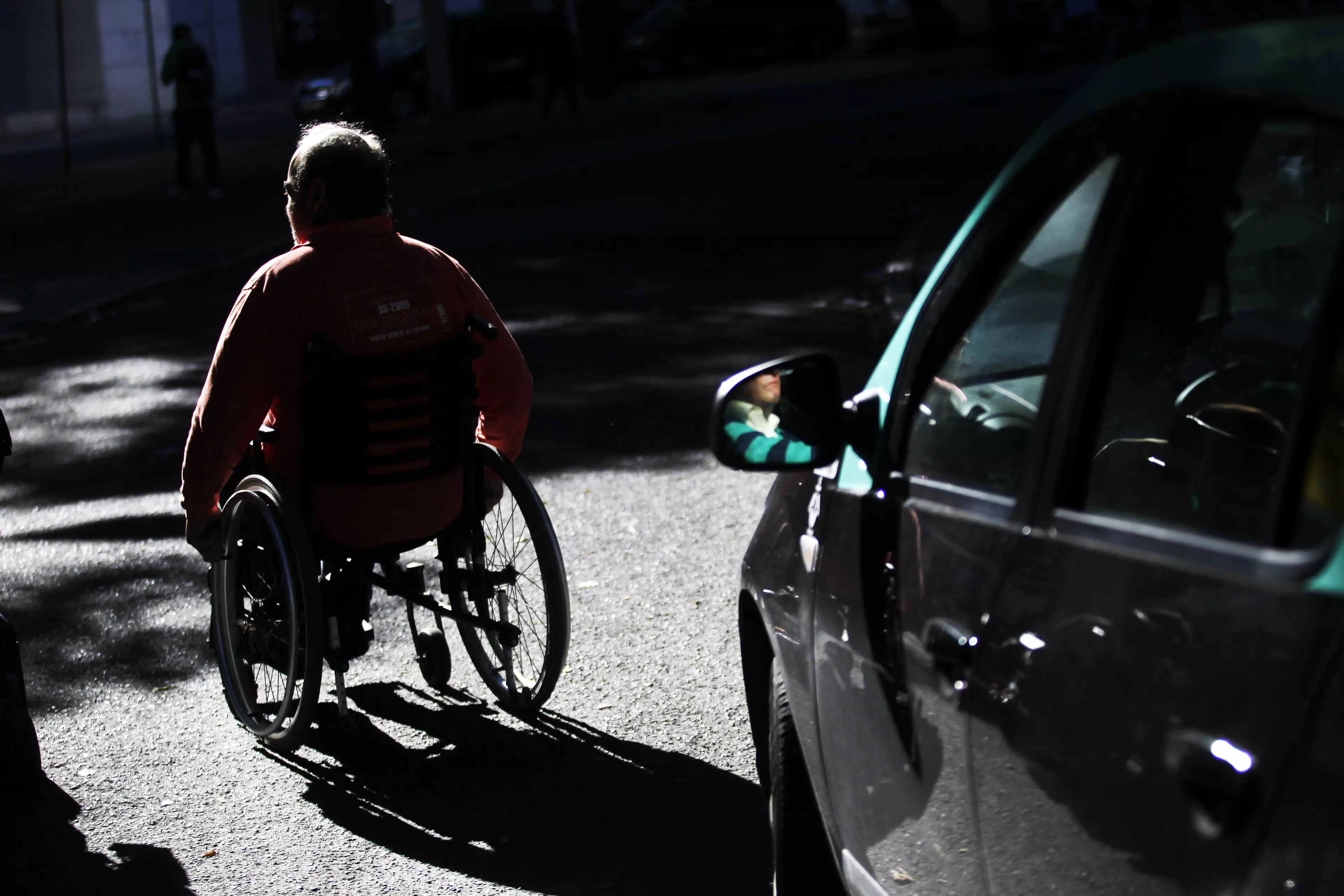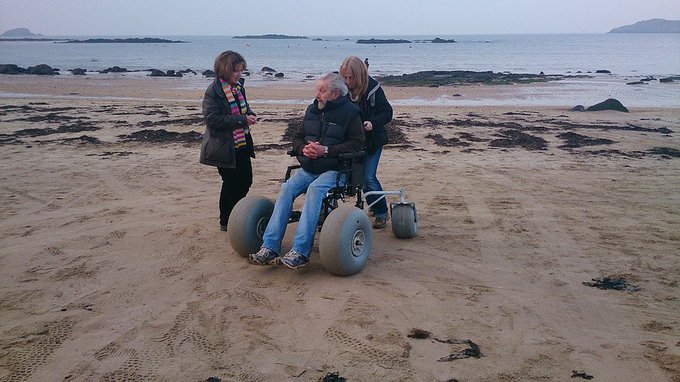
Being categorised as physically disabled can also be difficult to come to terms with mentally.
However, from the example set by many inspirational people who have bravely stepped forward to confront the stigma recently, physical disability is more understood than ever in the past.
However, we still continue to focus on the success stories in sport and not on everyday people. These are the beings who may not be setting sporting records but do have to overcome many of their own obstacles. What about those who are struggling to come to terms with their life-changing impairment and how it is impacting upon their mental health?
Advert

Credit: PA
The link between disability and mental health...
Studies have shown that 29 percent of people suffering with a physical disability are also prone to anxiety, compared to 12 percent of able-bodied people. This disparity between disabled and able-bodied people is, on a fundamental level, to do with confidence.
Advert
There's no short-term fix to living a happy and healthy life after
suddenly becoming disabled. It's tough and, more importantly, it takes time to
adapt. Some crumble, others fight,
but all re-evaluate.
Financially, it can be a struggle. In 2003, a new system of disability benefits took effect across England, Scotland and Wales. As a result, almost a fifth of claimants - 600,000 people - were under threat of losing their benefits.
The terms and conditions for those who are and are not eligible to claim disability allowance changed. Dividing the nation, some believed this would prevent benefit thieves abusing the system. However, as with all cuts, it has an adverse impact for many.
In 2008, mental health charity Mind released research containing some shocking figures relating to the relationship between financial struggle and mental health. The In The Red document found that among the 1,804 people surveyed, each owed an average of £3,250 on credit or store cards. It found debt had a connection with mental health. 66 percent of respondents who had mental health issues also had money worries.
Advert
In a more recent study carried out by Money and Mental Health Policy Institute, over a five-week survey that included 5,413 responses, 72 percent said that their mental health problems have made their financial situation worse. This isn't a direct link to disability, but with more people suffering money problems who also have a disability, it does have a knock-on effect.
With these aforementioned benefit cuts, this is going to trickle down and affect disabled people more than most.
However, it's not all doom and gloom.
According to the Labour Force Survey, disabled people are now
more likely than they were in 2002 to be employed. The gap has reduced by 10
percentage points over the last 14 years. That's a positive.
Advert

Paralympian Terezinha Guilhermina is a Brazilian athlete who explained that she grew up in poverty. Read how poverty affected her here. Credit: PA
However, with more than two million disabled people out of work in the UK, clearly more needs to be done. I argue that it's a team effort; change comes from the individual, the community and the government. Without the three components working in harmony, we're fighting a losing battle.
"People with a physical disability are as vulnerable to mental health problems as everyone else, but the impact of pain, of discrimination or the restrictions on someone's way of living can add additional pressures and put some people at higher risk," says Sophie Corlett, Director of External Affairs at Mind.
Advert
So how do we combat this?
Getting into a positive state of mind...
Since when did a disability, mental or physical, define who somebody is as a person? Everyone - with or without an impairment - can do something different that will begin to showcase individual qualities as opposed to being satisfied with fitting in. Then, and only then, people will start looking past impairments, disabilities or any physical imperfections for that matter. Instead, people will start getting to know the characteristics of the individual.
That's not to say that no-one will notice your disability. And it's not to say that it can't be brought up from time to time. But normalising and accepting your disability is a great way to get into a positive state of mind.
To do something incredible, irrespective, or even inclusive of your 'disability', is the fucking dog's bollocks!
As well as creating the 'awesome' person you are, another part of getting into a positive state of mind is accepting, and in some instances poking fun, at yourself. Accepting, working with and defying your disability means you can get into a routine that keeps you on a high.
Alex Brooker is a good example of someone who's in the limelight and uses his disability to highlight the everyday reality for someone with a disability. And this reality is that he's just a guy, like everyone else. He was born with arm and hand
disabilities and has a prosthetic leg. Through talking, and some cases laughing
about it, among other things, Brooker started to engage with a large audience,
which crescendoed in 2012 as the world focused on the London Paralympic Games.

Image credit: PA
The comedian, TV presenter and journalist is straight-up about most topics. He genuinely says and shares it how it is. You only have to read this WhatsApp conversation to see for yourself how he's just a normal lad raising the banter level at every opportunity he gets.
Brooker, who is best known for co-hosting the award-winning The Last Leg, which came onto Channel 4 screens in 2012, is also an ambassador for Scope. On the charity's website, he says: "Don't be afraid of your disability. That's who you are. It's who I am. My hands are part of me - I can't go into an interview with a pair of mittens on hoping they don't notice!
"Be confident. You've got something that no one else has, I promise you. You just have to look at yourself and think, 'what do I bring to the table?' Some people are funny, some people are organised, some people are good listeners. Everyone's got something."
The link between physical disability and concurrent mental health issues has never been more prevalent. It's time for that to change. It's time for everyone to say a great big massive 'fuck you' to the archaic notion of disability. It's time to say 'yes I can'.
Be brave. Talk about it.
UOKM8? is a campaign by LADbible, featuring films and stories that provide advice and inspiration on mental health.Explore more here and don't suffer in silence. Let's talk mental health.
MIND: 0300 123 3393.
Samaritans: 116 123.
CALM: Outside London 0808 802 5858, inside London 0800 58 58 58.
Featured Image Credit:
Topics: UOKM8, Mental Health, UOKM8?, Disability

